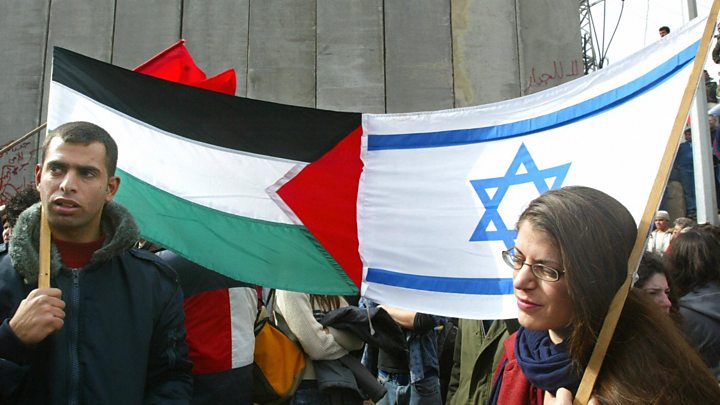Israelis are voting in their country’s second general election in five months.
Prime Minister Benjamin Netanyahu called the snap election after failing to form a governing coalition with a viable majority after April’s vote.
The final opinion polls put his right-wing Likud party neck and neck with its main challenger, the centrist Blue and White party led by former military chief Benny Gantz.
Smaller parties could therefore have a big say in the final outcome.
Negotiations on the formation of a new coalition are expected to start as soon as voting ends at 22:00 (19:00 GMT) and exit polls are published.
What happened last time?
Likud and Blue and White came away with 35 seats each in the 120-seat Knesset.
Mr Netanyahu declared victory and it appeared that he would be able to secure a majority with the backing of smaller right-ring and religious parties. But after several chaotic weeks the attempted coalition-building collapsed into recriminations.
On the surface was a dispute over Israel’s secular versus its religious character, says the BBC’s Tom Bateman in Jerusalem.
But ultimately, our correspondent adds, Mr Netanyahu’s problems stemmed from a narrowing range of options to build a governing bloc, weakened as he is by the charges of bribery, fraud and breach of trust he faces in three corruption cases, pending a final hearing. He has denied any wrongdoing.
What is Netanyahu’s pitch to voters this time?
The campaign has seen him make ever more strident appeals to the right wing.
Last week, Mr Netanyahu declared he would “apply Israeli sovereignty” in the Jordan Valley if he won a record fifth term in office. The announcement amounted to a promise to effectively annex 30% of the occupied West Bank, which Palestinians want to be part of a future state.

Amid international condemnation, the Palestinian leadership called the move a war crime which would bury any prospects for peace.
Mr Netanyahu also reiterated a pledge from the last election to annex Jewish settlements in the West Bank. The settlements are considered illegal under international law, though Israel disputes this.
“We find ourselves at the high point of an historic change in the history of the Jewish people and the State of Israel,” Mr Netanyahu wrote in the Maariv newspaper on Monday.
“I am asking now for your confidence in order to complete the historic task and fortify the State of Israel’s borders and security forever.”
US President Donald Trump’s long-awaited plan for a peace agreement between Israelis and Palestinians is expected to be published soon after the election.
What has Benny Gantz promised?
Mr Netanyahu faces an emergent centrist alliance studded with retired generals, who say they will end Israel’s increasing divisions.
Mr Gantz wrote in Maariv that a victory for Blue and White – which he founded in February along with former Finance Minister Yair Lapid, leader of the Yesh Atid party – would “change the direction of the ship of state of Israeli democracy”.

“No more instigating rifts in an attempt to divide and conquer, but rather quick action to form a unity government,” he added. “No looking out for the interests of pressure groups, but rather a government that looks out for the majority of Israeli citizens.”
It is not clear where he stands on Mr Netanyahu’s plan to annex Jewish settlements and the Jordan Valley. He has not said whether or not he accepts the idea of a Palestinian state, although he rejects withdrawing from all of the West Bank.
Why could smaller parties be key?
The final polls suggested no clear route to government for either Mr Netanyahu or Mr Gantz.
Avigdor Lieberman, an ally-turned-rival of the prime minister and leader of the right-wing secular Yisrael Beiteinu party, could end up holding the balance of power.
He prevented Mr Netanyahu forming a coalition after the last election because he refused to back down in a longstanding dispute with religious parties over a bill governing exemptions from military service for ultra-Orthodox young men.
Mr Lieberman has said the only way he will help return Mr Netanyahu to office after Tuesday’s vote is if Likud agrees to a secular unity government and shares power with Blue and White – something the prime minister has ruled out.



